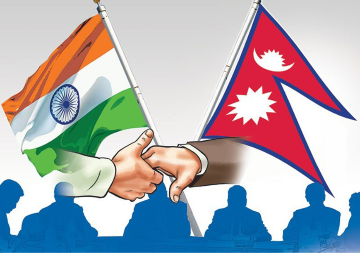The killing of Shujaat Bukhari, Editor-in-Chief of Rising Kashmir, has unleashed a flood of emotional outpourings among the tribe of scribes. While it is never easy for journalists to write objectively when someone from their biradari is assassinated, and a bit of hyperbole is quite natural in extolling the virtues of the person killed, pushing personal, political, professional and ideological agendas on the back of an unconscionable murder doesn’t do any service to the memory of the slain journalist — even less so when their hysterics are the result of half-truths and incomplete facts.
I cannot say Shujaat was a friend, but we ran into each other many times and had our share of run-ins at seminars and conferences, both in India and abroad. Despite our serious disagreements and differences, it goes to Shujaat’s credit that he never became disagreeable simply because we didn’t agree with each other.
Unlike most other journalists who are extremely prickly when their style of journalism is questioned, Shujaat was someone who wouldn’t make an issue of it. He would try to explain where he was coming from — but wouldn’t press the issue, much less try to convert his interlocutor to accept what he was saying.
Perhaps we sometimes do become unfair and insensitive towards journalists reporting from conflict zones.
The fact is, we simply don’t face the sort of professional and personal pressures that confront people located on a ground zero of conflict. While it is quite easy for us to theorise and pontificate on the problems with reportage from a virtual war zone, the practical reality of reporting from such an area is something else. Reporters who parachute into a conflict area don’t have it easy — but even they don’t face the sort of difficulties faced by journalists who live the conflict.
However, there is a flip side to this argument, about people reporting from ground zero and those analysing developments from a comfortable distance. The latter do not suffer the exigencies of navigating through the minefield of a dirty war, one in which no one is sure who is the enemy and who is the friend; they can therefore think of "problems" and "solutions" which those in the thick of things don’t have the luxury of thinking out.
Tragic as Shujaat’s death is, its implications will be far-reaching.
The first is, of course, that his brutal murder is a sign, if one was needed, that the situation in Kashmir is continuing to deteriorate. Any temporary truce or calm is just that.
Worse is still to come.
Cocky confidence and spin doctoring by government spokespersons, coupled with the hubris of politicians that the security forces are well-placed and well-equipped to prevent the situation spiraling out of control, is either willful deception — or worse, delusion.
There is a new wave of terrorism sweeping Kashmir.
It comprises not just well-trained jihadist terrorists supported and sponsored by Pakistan, but also young Kashmiri boys and men who, after a fashion or trend, have decided to join the ranks of militants. While one part of this terrorism is directed from across the border, another part of it is chaotic, diffused, almost gang-land-type violence in which a band of guys take it upon themselves to "make their bones" and establish themselves as men of consequence.
The fact that Shujaat’s assassins would have studied his routine, and managed to carry out their grisly task in a high-security zone, were savvy enough to pick the right time — iftaar — to strike (it is a time when the Ramzan fast is broken and there is a tendency to relax) suggests a level of planning and execution that needs to be taken seriously. But whether this brutal killing was carried out by guided terrorists for some strategic objective or messaging, or by some random bunch "making their bones", is still not entirely clear.
The ceasefire, both inside Kashmir and along the Line of Control, has been a miserable failure.
The ceasefire ploy was a roll of dice — not a well-thought-out and well-planned initiative to kick-start a reconciliation process. It was almost as though the government (both state and central) had reached the end of their imagination and decided to do something, anything, to break the logjam.
But what they have ended up doing is releasing all the pressure that was built by the security forces after paying a heavy price in men and material. People on the ground claim that the "ceasefire" played into the hands of the terrorists and ended up empowering them.
The third implication is that the middle ground in Kashmir is shrinking at an alarming rate. It is going to become increasingly difficult for journalists to report freely from the terrorism-affected state. In a sense, we are slipping back to the early 1990s when newspapers used to publish advertisements of people disassociating from the Indian state and newsmen clarified their positions, lest they be targeted.
Shujaat’s killing is a sign that, in some ways, things are even worse than what they were in the 1990s.
In all the blood that was spilled during the 1990s and early 2000s, journalists were, by and large, left unmolested. They faced enormous pressures from both terrorists and the security forces, but apart from one or two cases, the journalist community lived to tell the tale.
This could be changing with Shujaat’s killing.
Middle-of-the-road journalism could start becoming a thing of the past. Worse, anyone who tries to bring a semblance of normalcy in Kashmir could become fair game. In other words, the message — no one is safe anymore.
For journalists, the danger is increasing also because unlike the 1990s, when everyone wanted to be on their right side in order to get their message out in the public domain, today, technology has made journalists redundant insofar as narrative-building or messaging is concerned. The ungoverned spaces on the internet have enabled terrorists to communicate virtually in real time and without the messenger (in the old days, the media organisation) editing or watering down their message.
This means that the restraint shown in the past — even if you disagreed with a media outfit or journalist, you did nothing, lest it turned the rest of the media tribe against you — no longer applies. The media is now a soft target which gets maximum bang for a terrorist's buck, without now having to suffer the damage caused by a hostile media.
The danger is even greater for journalists who go beyond the professional call of duty and dabble in peace-making by playing mediator or even messenger. In the case of Shujaat, there are some reports that he might have been targeted because he was trying to play mediator and push ahead with a nebulous peace process. If so, then his activities clearly riled some people who had no use for any peace process.
Kashmir today is on the edge of the abyss, once again.
Militancy is making a comeback and it isn’t limited to just local youth joining terrorist ranks. Older groups active in the 1990s and early 2000s are reviving.
The choice before the government in Srinagar and New Delhi is that they can end their ambivalence and prevarication and do everything necessary to break the ecosystem that supports terrorism and separatism in Kashmir.
Or, they can keep fiddling around, skirting the tough issues, let the situation deteriorate to a point that the water crosses their head and then take the tough decisions which they're avoiding today.
The only problem with the latter option is that the government will have to exert far more later than they will have to now.
But the way the Indian political system works, we won't act indeed until our head is under water.
This commentary originally appeared in DailyO.
The views expressed above belong to the author(s). ORF research and analyses now available on Telegram! Click here to access our curated content — blogs, longforms and interviews.




 PREV
PREV


